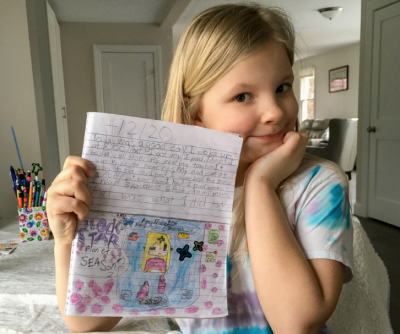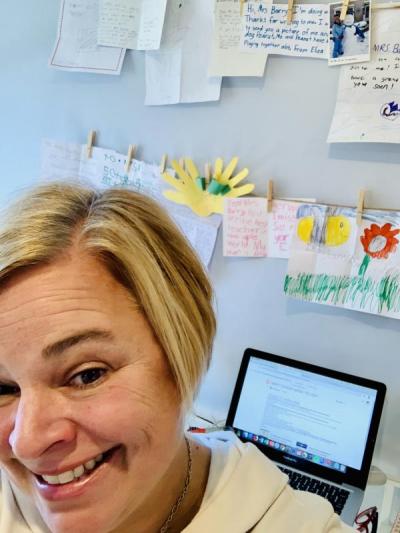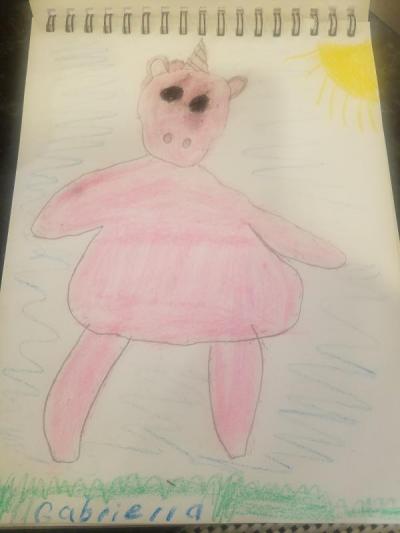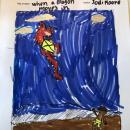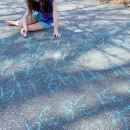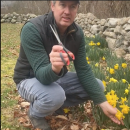Teachers start new term in a virtual classroom
Old Rochester Regional teachers Michele Barry and Rick Regan had never heard of the videochat platform Zoom two weeks ago. After a crash course, they are now experts enough to use it for classes, but also pushing students to get away from the screen as much as possible.
“I don’t want to sit on a screen all day, and I don’t want them to” either, Barry said, a sentiment that Regan echoed.
In redesigning the structure of their classrooms, teachers at Old Rochester Regional School District, Old Colony Regional Vocational Technical High School and Tabor Academy were also asked to follow guidelines from the Department of Elementary and Secondary Education: plan for instruction the last half of the school day, give a combination of scheduled check-ins and unscheduled learning, and hold office hours.
Barry, who teaches second grade in Mattapoisett, said that things are still changing by the hour and are different at elementary, middle school and high school level. Teachers have been told that they may not return to the classroom this year.
Barry said that even when schools were asking parents to perform “enrichment activities” she started providing materials to help families to address their question of “what do I do?”
She said the switch has forced the school to think about what leads to equality in access.
It’s internet and computers, sure. But also for some kids it’s also in the care: some students have parents who are plumbers and with the police and must both work, or older siblings who are looking after them and also trying to do schoolwork.
In keeping with the idea of inequality, Barry says that the district also wants to be mindful not to draw a bigger gap between students with individualized education plans and other students in this unique time. Those students will also work more directly with their teachers to arrange for the support they need.
Barry said she still is not sure if some of her students have gone on Google Classroom, however she acknowledges that there are also barriers that cause that.
This week, the school has started to move toward accountability by keeping data on students.
Since the school is still not allowed to teach new content, it has decided to build on the concepts that students struggled with the most in Terms 1 and 2.
The second grade teacher also said that structure is important to her students because “they crave that at this age.”
She wakes up early to post a morning message, and starts receiving notifications that students have responded by 6 a.m. By 9 a.m. she puts up a list of suggested things to do, and “some students are such creatures of habit that they will do it,” Barry said.
Other activities include having kids respond to the morning message via video and letter writing to improve writing skills. Barry tries to keep them outside and working with hands-on things.
She says she has gotten so many nice emails from parents about how much they appreciate being able to slow down, and calls administrators, “amazing, helpful in disseminating information and in their appreciation for our hard work.”
Her students often say they miss her, and “I miss them too! It’s such a fantastic class. We truly are a classroom family.”
For Old Rochester Regional Junior high School social studies teacher Rick Regan, it was a “tough transition but everyone did their part.”
One of the things that helped him, though, was to “keep a constant line of communication. It’s not an island. Everyone is tied together.”
He said change in grading status has changed the stakes a bit.
“Now that it’s pass-fail, we’re seeing more kids get involved,” the social studies teacher said, adding that “we don’t want to overburden them with everything that is going on, but we do want to be able to pick up where we left off,” whenever they get back to the classroom.
He also said his goal is to not have his students be on a screen too long, or if they do, to “create a video, play games, get beyond just reading and summarizing.”
The hardest thing about the transition is losing the “automatic connection in the classroom. If someone doesn’t understand you can see right away, whereas you can’t see here.”
On the positive side, Regan said he has found different online resources that he may be able to use once he is back in school as well.
For Center School K to 5 science specialist Ben Squire, his task is to create labs for students that are easy to follow, require minimal materials and align to the state standards for learning.
So far, Squire has done projects like a daffodil dissection, backyard birding and gave links to presentations from museums.
Squire said that it’s difficult to work with kids in a 10 minute video call, especially with younger children. It’s also hard to schedule calls because some families have 4 to 5 children, but don’t have 4 to 5 computers in their home.
Still, when Squire asks for students to send their work, he gets about 10 to 15 student responses showing off what they’ve done.
While he enjoys seeing the end product, Squire said he “can’t see the mind working through the product.”



